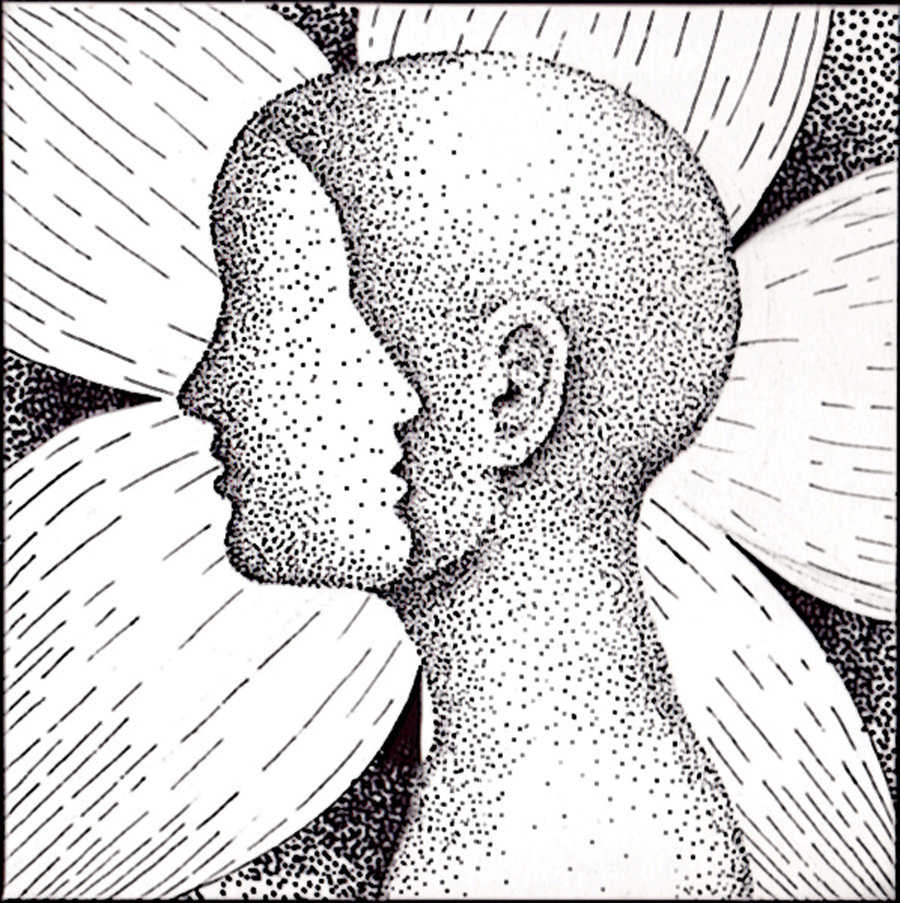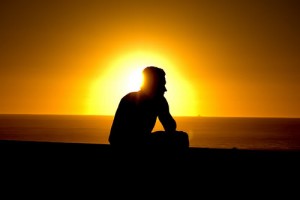Since the beginning of civilization, and probably before, sages have said, “know yourself.” There is no truism more common, yet also more commonly ignored. Just what is self-knowing, and why is it essential?
 One often hears these days that America is turning inward. It’s almost always said in derogatory terms, with the implication that the American people are withdrawing from the world, becoming completely self-concerned, and even becoming a nation of navel gazers.
One often hears these days that America is turning inward. It’s almost always said in derogatory terms, with the implication that the American people are withdrawing from the world, becoming completely self-concerned, and even becoming a nation of navel gazers.
One conservative commentator and media darling even equates introspection with narcissism, and implies that keeping a journal means that one is self-centered. To make such assertions in a pathologically outwardly oriented culture like America’s is not just stupid; it’s malign.
Introspection is defined as ‘an examination or observation of one’s own mental and emotional processes. The word comes from the Latin, ‘introspectus—to look inside.’
But there’s a big difference between examination and observation. They represent two very different approaches to understanding oneself, which is the foundation for understanding others and one’s society.
Examination is often synonymous with analysis, and it entails a separate self that does the examining. And as the saying goes, analysis is paralysis. Separativeness is inherent in statements like “the more you can yank yourself away from intimacy with yourself, the more reliable your self-awareness will be.”
Who or what is doing the yanking, except the self? And what does ‘intimacy with yourself’ mean? Self-awareness has no meaning in this narrative.
Only someone who has no inner life would write such twaddle: “The self is something that can be seen more accurately from a distance than from close up;” and, “we should see ourselves as literary critics, putting each incident in the perspective of a longer life story.”
This way of thinking about the self is completely self-referential, exemplifying and encouraging the very narcissism it decries. Such notions aren’t only redundant and ridiculous; they reflect the psychological division that is at the root of conflict, fragmentation and war.
notions aren’t only redundant and ridiculous; they reflect the psychological division that is at the root of conflict, fragmentation and war.
To be self-knowing doesn’t mean placing one’s ideas and image of oneself in a “longer life narrative,” or viewing one’s self as if it was an object in the distance. These are absurd ideas, which willfully misguide people about the most crucial thing in life: self-knowing.
Observation may imply a separate self, but it need not, and that makes all the difference. It’s possible, indeed imperative to watch what is as it arises, without judgment, analysis, or evaluation; indeed, without an observer. Such observation lets go of labels for what one is thinking and feeling, and remains with what is without comparison or any kind of ‘narrative.’ Awareness quickens and attention gathers, without effort or will.
In this process of undivided observation, preferably in the mirror of nature, the mind and heart unfold and tell their story without interpretation by the illusory separate self. The division between conscious and unconscious mind drops away. Insight, understanding, freedom and renewal naturally ensue. Without interference and interpretation, hurts and even traumas are released, and one becomes whole again.
This is the true meaning of meditative self-knowing, and it isn’t introspective, much less narcissistic. It does not uphold the separate self and indulge in the futile effort to make the ‘me’ healthy, and it does not project its darkness onto others under the guise of giving helpful advice.
Rather, it ends the center and the separate self, at least for a precious few minutes in meditation each day. After all, there is no center in the universe; why should there be in us?
Immanuel Kant said, “We can never, even by the strictest examination, get completely behind the secret springs of action.” But who or what is trying to get behind our motivations and impulses? It is the same movement of thought and self, which divides itself off from itself in an infinite regress.
So Kant put it wrongly; it isn’t a question of “getting behind the secret springs of action,” but of passively observing the movement of thoughts and emotions as they arise in the moment.
Undivided observation gathers unseen into an intensity of undirected attention that sweeps the mind and heart clean of the detritus of experience and useless memory. It isn’t a matter of withdrawing from society but of regularly taking some time for solitude, the most important thing in our hyper-connected society.
 Our crumbling institutions provided a patina of civilization since the so-called Enlightenment. But now the long-neglected work of self-knowing is the only thing that can save us.
Our crumbling institutions provided a patina of civilization since the so-called Enlightenment. But now the long-neglected work of self-knowing is the only thing that can save us.
Consciousness, as we generally know it, is the past, tradition and memory. I read a quote recently that has stayed with me: “Freedom is not from society but from idea.
So beware of mediocrities and celebrity darlings that talk about “a new standard of excellence.” They fool others and feign humility, while denying excellence and trying to destroy it.
Increasingly, without negation in meditation, there is nothing but darkness. But the mind-as-thought can spontaneously fall completely quiet in observer-less attention. Then the energy of the universe, which is the only true sacredness, flows through one to the extent of one’s present capacity.
It begins with an understanding of the meaning of self-awareness and self-knowing however, which have nothing to do with narratives and time, much less drivel like “thinking of yourself in the third person.”
Martin LeFevre